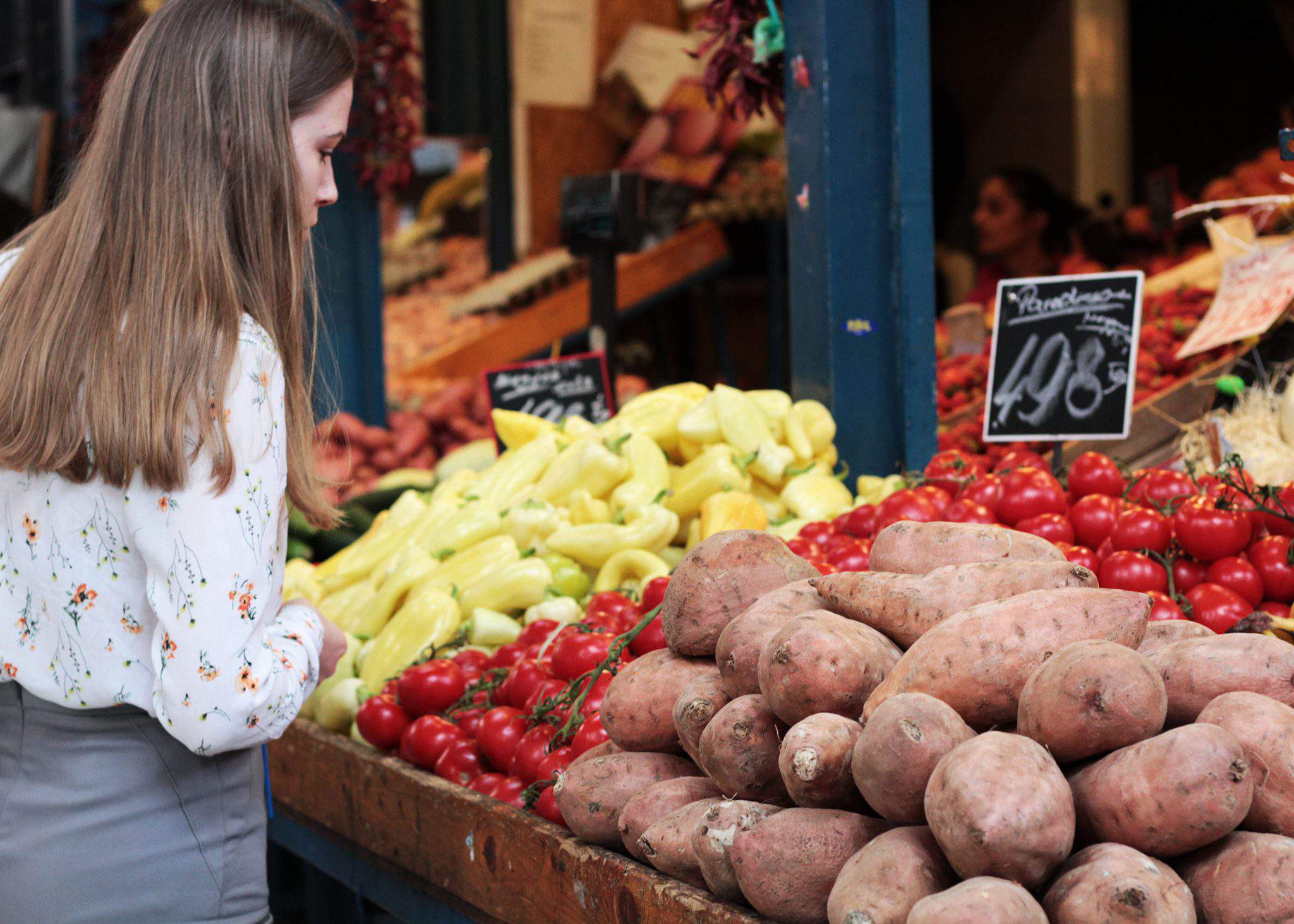Less and less Hungarian groceries on the shelves of multinational chain stores
According to a new survey published by NÉBIH (Nemzeti Élelmiszerlánc-biztonsági Hivatal – National Food Chain Safety Office), approximately 70% of all products are of Hungarian origin. In comparison, the same figure was almost 80% six years ago.
According to Sokszínűvidék.24.hu, examining the product ranges of the ten largest grocery chains present in Hungary, the survey has found that, especially in the case of international companies, the share of Hungarian products has decreased; in the case of the most important categories, it is currently around 70%. Those selling fresh goods have managed to retain their positions, but in the case of items where there is a significant added value to speak of, such as different types of cheese and ham, yoghurts and jam, approximately 50% of shelf space is taken up by imported products. These are also the categories where the most considerable decrease has been recorded compared to the data from the previous survey.
Researchers recorded detailed information pertaining to almost 40 000 products, in 16 traditional categories, such as meat and dairy products, eggs and honey, which the Hungarian food industry would be able to produce enough of to provide the entire population of the country with high-quality foodstuffs.
NÉBIH officers also emphasised the advantages of locally produced groceries: they are safe, delicious, fresh, sustainable, and we can be sure where they come from.
The biggest drop in the proportion of home-produced goods was found when examining the shelves of international chains, like Penny Market, Tesco, and Lidl, each of which increased the amount of imported items by over 10% compared with Hungarian products.
If averaging all international store chains figures, there is a decrease of almost 9%, but even local stores sell 6% less Hungarian goods than six years ago. The only store to have demonstrated an increase in this field is Aldi, but even in their case, the difference is minimal, less than 1%.
If we were to rank grocery chains by the proportion of Hungarian products on their shelves, the first three places would be taken by three local stores: Reál (80.65%), Coop (80.17%) and CBA (76.95%), while Lidl would be at the bottom of the list (56.09%), followed by Tesco (66.07%) and Penny Market (67.58%).

Read alsoHungarian woman takes gingerbread to the next level – PHOTO GALLERY
Source: by Eszter Mrázik
please make a donation here
Hot news
Orbán: As long as we lead the country, Hungary won’t get into war
Free children’s menu for mobile-free dining in 5 Budapest restaurants!
Opposition Momentum: Without us, we can’t find our way back to Europe
Warning: Traffic restrictions in Budapest today due to mass event
Hungarian FM Szijjártó in important talks with head of Zelensky’s office
Uber in Hungary: Secures dispatching license and launches in Budapest with game-changing partnership!



4 Comments
We live in capitalistic and global society. If it’s cheaper for business owner to put fresher, better looking, delicious and above all consumer geared products who can stop it from happening? People travel and see how markets are operated in different countries. Also see qualities in other places. So I am surprised to see a line that says “…with high-quality foodstuffs.” Often I see shelves with rotten products. There are places with bad quality control. Even in traditional markets imported goods look fresher and more delicious. It’s not about where the food came from. It’s about what is a better choice from a consumer’s point of view. I am not saying local products are bad. I am saying there should be effort from both producers and stores to make their products more appealing. Can’t force consumers to buy one over the other when the quality is not there.
We know there is an agenda at play by some here in Hungary to shut down or force the sale of foreign owned grocery shoppes. This is at least the 3rd article with this theme in the past year here on DNH. Hungarians who love being part of the European Union must decide what they want. You either want to be part of an bigger free trade zone within the European zone or you want to return to isolationism and local products that many shoppers have voted with their wallets against in favor of other items not produced here in Hungary. The Hungarian shoppes are NOT listening to consumer demands and are purchasing items from the foreign owned chains because they give the people what they want. Forcing the sale or closure of foreign owned chains here will result in many Hungarian employees losing their jobs and being unable to find employment elsewhere. IS THAT REALLY WHAT WE NEED IN this time of high unemployment?
This is not necessarily a problem for three reasons: 1) the decrease in % does not mean that the absolute number of Hungarian made products has decreased, because…. 2) Maybe Hungarian consumers, as a result of having higher incomes, have chosen to top up traditional Hungarian purchases with more foreign products that cannot be made in Hungary (olive oil, fish, oranges etc..), and 3) maybe Hungarian producers have started to sell less domestically and export more to foreign markets where they can obtain better prices/margins… The headline and the % say nothing of the underlying reality… Ultimately, it is good the consumers have a choice…
Quality of Hu groceries available in average stores is generally very poor and just a little less poor in very expensive stores, which most people can not afford.